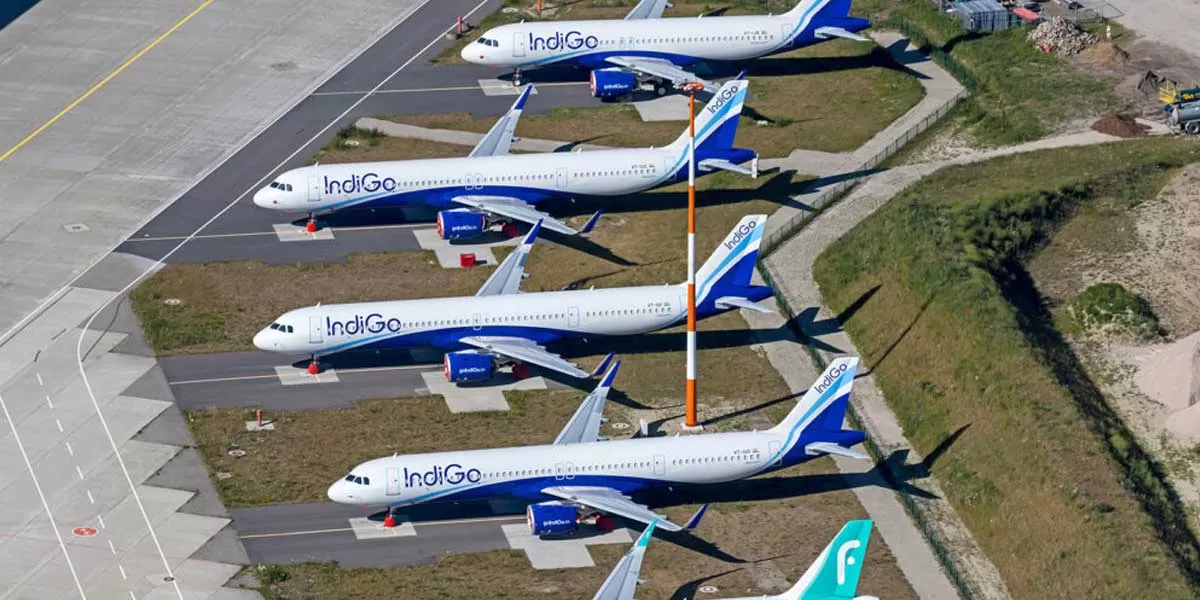The Jewar Airport, touted as North India's largest international aviation hub, has hit a delay, pushing its opening from mid-2024 to early 2025. This delay, confirmed by officials, arises from ongoing challenges in land acquisition, environmental clearances, and logistical issues. The airport, expected to bolster economic activities in Uttar Pradesh's Greater Noida region, now faces a revised timeline, impacting both regional connectivity and infrastructural development.
Initially envisioned to cater to the burgeoning demand for air travel in the Delhi-NCR region, the Jewar Airport's delay underscores the complexities involved in executing large-scale infrastructure projects. The project, spread across thousands of acres, aims to alleviate pressure from the existing Indira Gandhi International Airport in Delhi, offering improved facilities and operational efficiency.
However, with the setback pushing the inauguration to early 2025, stakeholders, including the government and private developers, are recalibrating timelines and resource allocations. This delay, though disappointing, highlights the meticulous planning required for such transformative ventures, balancing development needs with environmental and regulatory imperatives.
The Jewar Airport project, estimated to cost several thousand crores, represents a significant investment in India's aviation sector, promising to enhance connectivity, tourism, and industrial growth in Uttar Pradesh. Despite the delay, authorities remain committed to ensuring that the airport meets international standards, integrating modern amenities and sustainable practices.
For residents and businesses in the region, the extended timeline necessitates continued patience and readiness for enhanced connectivity once the airport becomes operational. The project's delay, while a temporary setback, underscores the complexities inherent in executing large-scale infrastructure projects amidst regulatory frameworks and environmental considerations.
As construction progresses and challenges are addressed, the Jewar Airport aims to redefine regional connectivity, potentially becoming a pivotal economic driver for Uttar Pradesh and neighboring states. The revised timeline, now targeting early 2025 for completion, reflects ongoing efforts to overcome logistical hurdles and deliver a world-class aviation facility that meets global standards.
In conclusion, while the Jewar Airport's delay by seven months poses challenges, it underscores India's commitment to expanding its aviation infrastructure ambitiously. With stakeholders working to expedite the remaining phases of development, the airport remains poised to transform air travel dynamics in North India upon its eventual inauguration.The Jewar Airport, touted as North India's largest international aviation hub, has hit a delay, pushing its opening from mid-2024 to early 2025. This delay, confirmed by officials, arises from ongoing challenges in land acquisition, environmental clearances, and logistical issues. The airport, expected to bolster economic activities in Uttar Pradesh's Greater Noida region, now faces a revised timeline, impacting both regional connectivity and infrastructural development.
Initially envisioned to cater to the burgeoning demand for air travel in the Delhi-NCR region, the Jewar Airport's delay underscores the complexities involved in executing large-scale infrastructure projects. The project, spread across thousands of acres, aims to alleviate pressure from the existing Indira Gandhi International Airport in Delhi, offering improved facilities and operational efficiency.
However, with the setback pushing the inauguration to early 2025, stakeholders, including the government and private developers, are recalibrating timelines and resource allocations. This delay, though disappointing, highlights the meticulous planning required for such transformative ventures, balancing development needs with environmental and regulatory imperatives.
The Jewar Airport project, estimated to cost several thousand crores, represents a significant investment in India's aviation sector, promising to enhance connectivity, tourism, and industrial growth in Uttar Pradesh. Despite the delay, authorities remain committed to ensuring that the airport meets international standards, integrating modern amenities and sustainable practices.
For residents and businesses in the region, the extended timeline necessitates continued patience and readiness for enhanced connectivity once the airport becomes operational. The project's delay, while a temporary setback, underscores the complexities inherent in executing large-scale infrastructure projects amidst regulatory frameworks and environmental considerations.
As construction progresses and challenges are addressed, the Jewar Airport aims to redefine regional connectivity, potentially becoming a pivotal economic driver for Uttar Pradesh and neighboring states. The revised timeline, now targeting early 2025 for completion, reflects ongoing efforts to overcome logistical hurdles and deliver a world-class aviation facility that meets global standards.
In conclusion, while the Jewar Airport's delay by seven months poses challenges, it underscores India's commitment to expanding its aviation infrastructure ambitiously. With stakeholders working to expedite the remaining phases of development, the airport remains poised to transform air travel dynamics in North India upon its eventual inauguration.


















